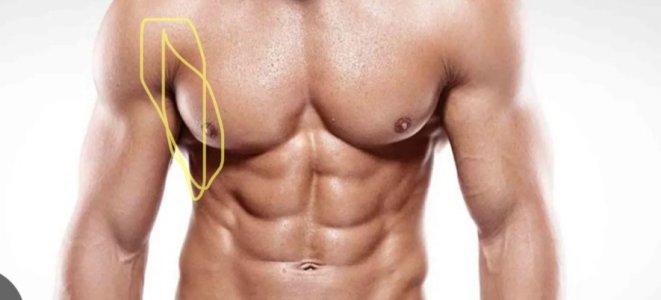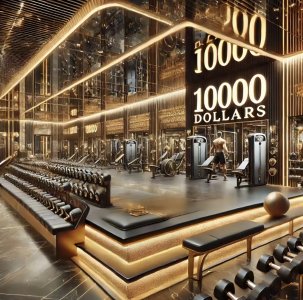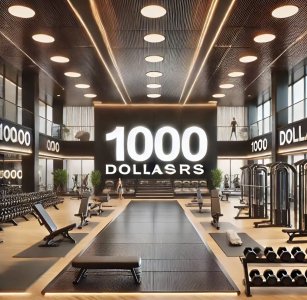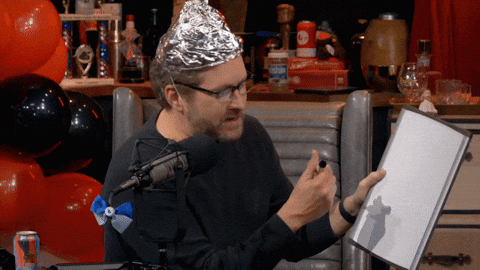Saturday, July 17, 2010
The truth about alcohol, fat loss and muscle growth
12:04 PM | Posted by Martin Berkhan
I've been getting tons of questions relating to alcohol and fat loss lately. Happens every time summer rolls around. Outdoor parties, clubbing, vacations and the whole shebang. Alcohol is a key ingredient. What people want to know is basically how fattening alcohol is, how it affects protein synthesis, how to make it work with their diet, and what drinks to go for at the club.
I think this is very good topic to cover today, since we're right in the middle of summer and all, because most people involved in the fitness and health game tend to miss out on a lot of fun due to avoiding alcohol. I know a lot of peeps who'd rather stay home and manage their diet than go out and have a few drinks. Sad, really, because it's all for the wrong reasons. I don't blame them though. Read the mags or listen to the "experts" and you'll soon be believing that a few drinks will make your muscles fall off, make you impotent, and leave you with a big gut. It's mostly ********, of course. No big surprise when we're dealing with the alarmist fitness mainstream that can't seem to put things in the right perspective if their life depended on it.
This is a definitive primer on the effects of alcohol on all things someone interested in optimizing body composition might be interested in. At the end of this article I'm also going to show you how a hopeless drunk like myself can stay lean while drinking on a regular basis.
C'mere and lemme me tell you my secretz...*hick*
Alcohol and thermogenesis
There's been an ongoing debate for years whether alcohol calories "count" or not. This debate has been spurred on by the fact that drinkers weigh less than non-drinkers and studies showing accelerated weight loss when fat and carbs are exchanged for an equivalent amount of calories from alcohol. The connection between a lower body weight and moderate alcohol consumption is particularly strong among women. In men it's either neutral or weak, but it's there.
How can this be explained, considering that alcohol is a close second to dietary fat in terms of energy density per gram? Not to mention the fact that alcohol is consumed via liquids, which doesn't do much for satiety?
Alcohol is labeled as 7.1 calories per gram, but the real value is more along the lines of 5.7 calories due to the thermic effect of food (TEF) which is 20% of the ingested calories. This makes the TEF of alcohol a close second to protein (20-35% depending on amino acid composition). The heightened thermogenesis resulting from alcohol intake is partly mediated by catecholamines.
Is higher TEF a reasonable explanation for lower body fat percentage in regular drinkers? We need to consider that alcohol does not affect satiety like other nutrients. The disinhibition of impulse control that follows intoxication may also encourage overeating. Ever come home from a party in the middle of the night and downed a box of cereals? That's what I mean.
It's unlikely that the effect of alcohol on body weight in the general population can be attributed solely to the high TEF of alcohol. An alternative explanation is that alcohol consumption decreases food intake in the long term.
Another explanation is that regular alcohol consumption affects nutrient partitioning favorably via improvements in insulin sensitivity.
Alcohol, insulin sensitiviy and health
Moderate alcohol consumption improves insulin sensitivity, lowers triglyceride concentrations and improves glycemic control. Not only in healthy folks, but also in type 2 diabetes. There is no clear consensus on the insulin sensitizing mechanism of alcohol, but one viable explanation may be that alcohol promotes leanness by stimulating AMPK in skeletal muscle. It's not a stretch to assume that this might have favorable effects on nutrient partitioning in the longer term.
If the effect of alcohol consumption on insulin sensitivity doesn't impress you, then consider the fact that studies have consistently shown that moderate drinkers live longer than non-drinkers. This can be mainly attributed to a lowered risk of cardiovascular disease. However, alcohol also contributes to a healthier and disease-free life by protecting against Alzheimer's disease, metabolic syndrome, rheumatoid arthritis, the common cold, different types of cancers, depression and many other Western diseases. The list goes on and on.
It can almost be said beyond doubt that moderate alcohol consumption is healthier than complete abstinence. With this in mind, it's strange that the fitness and health community shun alcohol. This irrational attitude seems to be grounded in the beliefs that alcohol is fattening and will hamper muscle gains. So let's take a look at that.
Alcohol, hormones and training
You've probably heard that alcohol intake lowers testosterone. While this is true, the actual impact has been widely exaggerated. A three-week study that had men and women consume 30-40 g alcohol per day, showed a 6.8% reduction in testosterone for the men and none for the women at the end of the study-period. That's three beers a day for three weeks and a measly 6.8% reduction in testosterone for the men. What kind of an effect would you think a few beers on an evening once or twice a week would have? Hardly any.
For alcohol to significantly lower testosterone, you need to do some serious drinking. ~120 g alcohol, the equivalent of 10 beers, will lower testosterone by 23% for up to 16 hours after the drinking binge. If you drink so goddamn much that you are admitted to the hospital, you get a similar effect with a reduction of about -20%.
A few studies have looked at alcohol consumption in the post-workout period. One study examined the hormonal response to post-workout alcohol consumption using 70-80 g alcohol, equivalent to 6-7 beers. Talk about "optimizing" nutrient timing. Anyway, despite this hefty post-workout drinking binge, no effect on testosterone was found and only a very modest effect on cortisol was noted. The latter is as expected, considering the effect of alcohol on catecholamines. Citing directly from this paper, this quote sums up the scientific findings regarding the effects of alcohol on testosterone:
"Although the majority of studies involving humans show no ethanol effect on serum luteinizing hormone (LH), some data have demonstrated an increase while others have supported a decrease"
- Koziris LP, et al (2000).
It seems that the fitness mainstream, which has been most adamant about propagating the "alcohol-zaps-testosterone-myth", have cherry-picked a bunch of studies to base their claims on. Well, no big surprise there. We've been through this many times before with meal frequency and countless other diet myths.
When it comes to recovery after strength training, moderate alcohol consumption (60-90 g alcohol) does not accelerate exercise-induced muscle damage or affect muscle strength.
However, the research is a bit mixed on this topic. One study, which used a very brutal regimen of eccentric training only, followed by alcohol intakes in the 80 g range (1 g/kg) noted impaired recovery in the trained muscles. I should note that eccentric training is hard to recover from and the volume used here was pretty crazy.
Another study looked at exhaustive endurance training followed by post-workout alcohol intakes in the 120 g range (1.5 g/kg) and saw significant suppression of testosterone that carried over to the next day.
The common denominator among these two studies is either extremely tough training or unusually high alcohol intakes in the post-workout period. Unless you're in the habit of going bar-hopping after 50 reps of eccentric leg extensions to failure, this stuff does not apply to you. Yet it's studies like these that gets the attention among the alcohol-alarmist fitness crowd.
What about protein synthesis? Strangely enough, the acute effects of alcohol on muscle protein synthesis in normal human subjects are non-existent in the scientific litterature. It has only been studied in chronic alcoholics, which have reduced rates of muscle protein synthesis. Chronic alcoholic myopathy, which causes muscle loss, is one unfortunate side-effect of alcohol abuse. However, this study showed that alcoholics without myopathy had lower body fat percentage and the same amount of lean mass as non-drinkers. So much for the argument that alcohol makes all your muscles fall off.
If you put any stock in rat studies, it's clear that alcohol affects protein synthesis negatively. Then again, results from rat studies are almost never directly applicable to human physiology. There are profound differences in how humans and rodents cope with macronutrients and toxins.
Absolut Turnover is is my favorite drink right now. You need a shot of Absolut Vanilia and one lime wedge dipped in cinnamon and brown sugar. Drink, bite and enjoy.
Alcohol and fat storage
Let's quickly review how nutrients are stored and burned after a mixed meal.
1. Carbs and protein suppress fat oxidation via an elevation in insulin. However, these macronutrients do not contribute to fat synthesis in any meaningful way by themselves.
2. Since fat oxidation is suppressed, dietary fat is stored in fat cells.
3. As the hours go by and insulin drops, fat is released from fat cells. Fat storage is an ongoing process and fatty acids are constantly entering and exiting fat cells throughout the day. Net gain or loss is more or less dictated by calorie input and output.
If we throw alcohol into the mix, it gets immediate priority in the in the substrate hierarchy: alcohol puts the breaks on fat oxidation, but also suppresses carb and protein oxidation.
This makes sense considering that the metabolic by-product of alcohol, acetate, is toxic. Metabolizing it takes precedence over everything else. This quote sums up the metabolic fate of alcohol nicely:
"Ethanol (alcohol) is converted in the liver to acetate; an unknown portion is then activated to acetyl-CoA, but only a small portion is converted to fatty acids.
Most of the acetate is released into the circulation, where it affects peripheral tissue metabolism; adipocyte release of nonesterified fatty acids is decreased and acetate replaces lipid in the fuel mixture."
- Hellerstein MK, et al (1999).
Acetate in itself is an extremely poor precursor for fat synthesis. There's simply no metabolic pathway that can make fat out of alcohol with any meaningful efficiency. Studies on fat synthesis after substantial alcohol intakes are non-existent in humans, but Hellerstein(from quotation) estimated de novo lipogenesis after alcohol consumption to ~3%. Out of the 24 g alcohol consumed in this study, a measly 0.8 g fat was synthesized in the liver.
The effect of alcohol on fat storage is very similar to that of carbs: by suppressing fat oxidation, it enables dietary fats to be stored with ease. However, while conversion of carbs to fat may occur once glycogen stores are saturated, DNL via alcohol consumption seems less likely.
Summary
* Moderate alcohol consumption is assocoiated with an abundance of health benefits. The long-term effect on insulin sensitivity and body weight (via insulin or decreased appetite) may be of particular interest to us.
* The thermic effect of alcohol is high and the real caloric value is not 7.1 kcal: it's ~5.6 kcal. However, it's still easy to overconsume calories by drinking. Calorie for calorie, the short-term effect of alcohol on satiety is low. Adding to this, intoxication may also encourage overeating by disinhibition of dietary restraint.
* The negative effects of alcohol on testosterone and recovery has been grossly exaggerated by the fitness mainstream. Excluding very high acute alcohol consumption, or prolonged and daily consumption, the effect is non-significant and unlikely to affect muscle gains or training adaptations negatively.
* The effect of alcohol on muscle protein synthesis is unknown in normal human subjects. It is not unlikely to assume that a negative effect exists, but it is very unlikely that it is of such a profound magnitude that some people would have you believe.
* Alcohol is converted to acetate by the liver. The oxidation of acetate takes precedence over other nutrients and is oxidized to carbon dioxide and water. However, despite being a potent inhibitor of lipolysis, alcohol/acetate alone cannot cause fat gain by itself. It's all the junk people eat in conjunction with alcohol intake that causes fat gain.
How to lose fat or prevent fat gain when drinking
Now that you understand the effect of alcohol on substrate metabolism, it's time for me to reveal how you can make alcohol work for fat loss. Alternatively, how you can drink on a regular basis without any fat gain. Without having to count calories and while drinking as much as you want.
Apply this method exactly as I have laid it out. If you've paid attention, you'll understand the rationale behind it. I've tested this on myself and on numerous clients. Rest assured that I'm not testing out some large-scale bizarre experiment here.
The rules are as follows:
* For this day, restrict your intake of dietary fat to 0.3 g/kg body weight (or as close to this figure as possible).
* Limit carbs to 1.5 g/kg body weight. Get all carbs from veggies and the tag-along carbs in some protein sources. You'll also want to limit carbohydrate-rich alcohol sources such as drinks made with fruit juices and beer. A 33 cl/12 fl oz of beer contains about 12 g carbs, while a regular Cosmopolitan is about 13 g.
* Good choices of alcohol include dry wines which are very low carb, clocking in at about 0.5-1 g per glass (4 fl oz/115ml). Sweet wines are much higher at 4-6 g per glass. Cognac, gin, rum, scotch, tequila, vodka and whiskey are all basically zero carbs. Dry wines and spirits is what you should be drinking, ideally. Take them straight or mixed with diet soda. (No need to be super-neurotic about this stuff. Drinks should be enjoyed after all. Just be aware that there are better and worse choices out there).
* Eat as much protein as you want. Yes, that's right. Ad libitum. Due to the limit on dietary fat, you need to get your protein from lean sources. Protein sources such as low fat cottage cheese, protein powder, chicken, turkey, tuna, pork and egg whites are good sources of protein this day.
* For effective fat loss, this should be limited to one evening per week. Apply the protocol and you will lose fat on a weekly basis as long as your diet is on point for the rest of the week.
Basically, the nutritional strategy I have outlined here is all about focusing on substrates that are least likely to cause net synthesis of fat during hypercaloric conditions. Alcohol and protein, your main macronutrients this day, are extremely poor precursors for de novo lipogenesis. Alcohol suppresses fat oxidation, but by depriving yourself of dietary fat during alcohol consumption, you won't be storing anything. Nor will protein cause any measurable de novo lipogenesis. High protein intake will also compensate for the weak effect of alcohol on satiety and make you less likely to blow your diet when you're drinking.
By the way, a nice bonus after a night of drinking is that it effectively rids you of water retention. You may experience the "whoosh"-effect, which I've talked about in my two-part series about water retention. That in itself can be motivating for folks who've been experiencing a plateau in their weight loss.
Apply this with good judgement and don't go out and do something stupid now. Remember, this a short-term strategy for those that want to be able to drink freely* without significantly impacting fat loss progress or causing unwanted fat gain. It's not something I encourage people to do on a daily basis, but it's one of the strategies that I apply for maintaining low body fat for myself and my clients.
* Now of course...you can always drink in moderation and make sure to not go over your calorie budget for the day. But what fun is there in that? I'd rather cheat the system with the kind metabolic mischief I've layed out above.
 in pain.
in pain. 





































